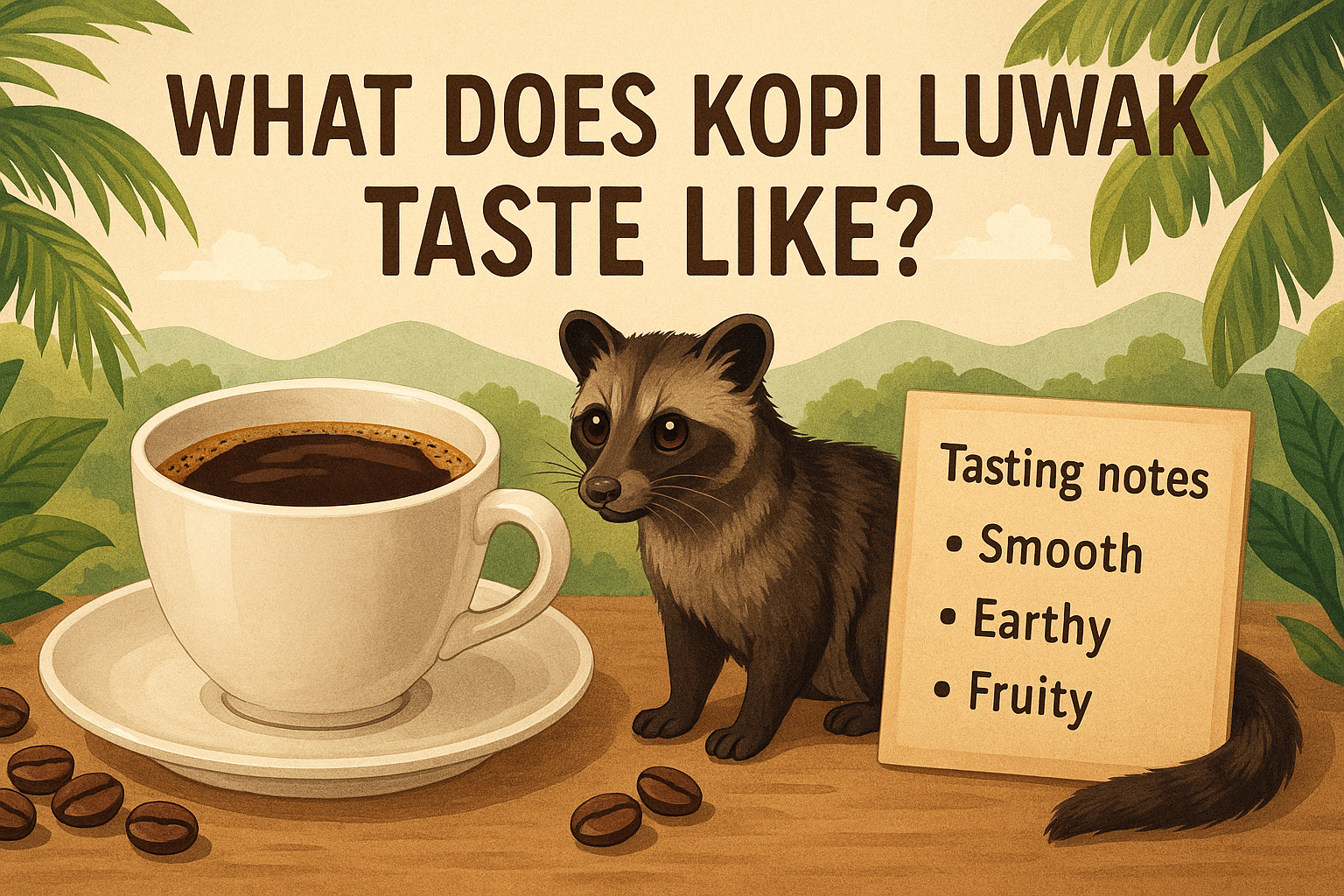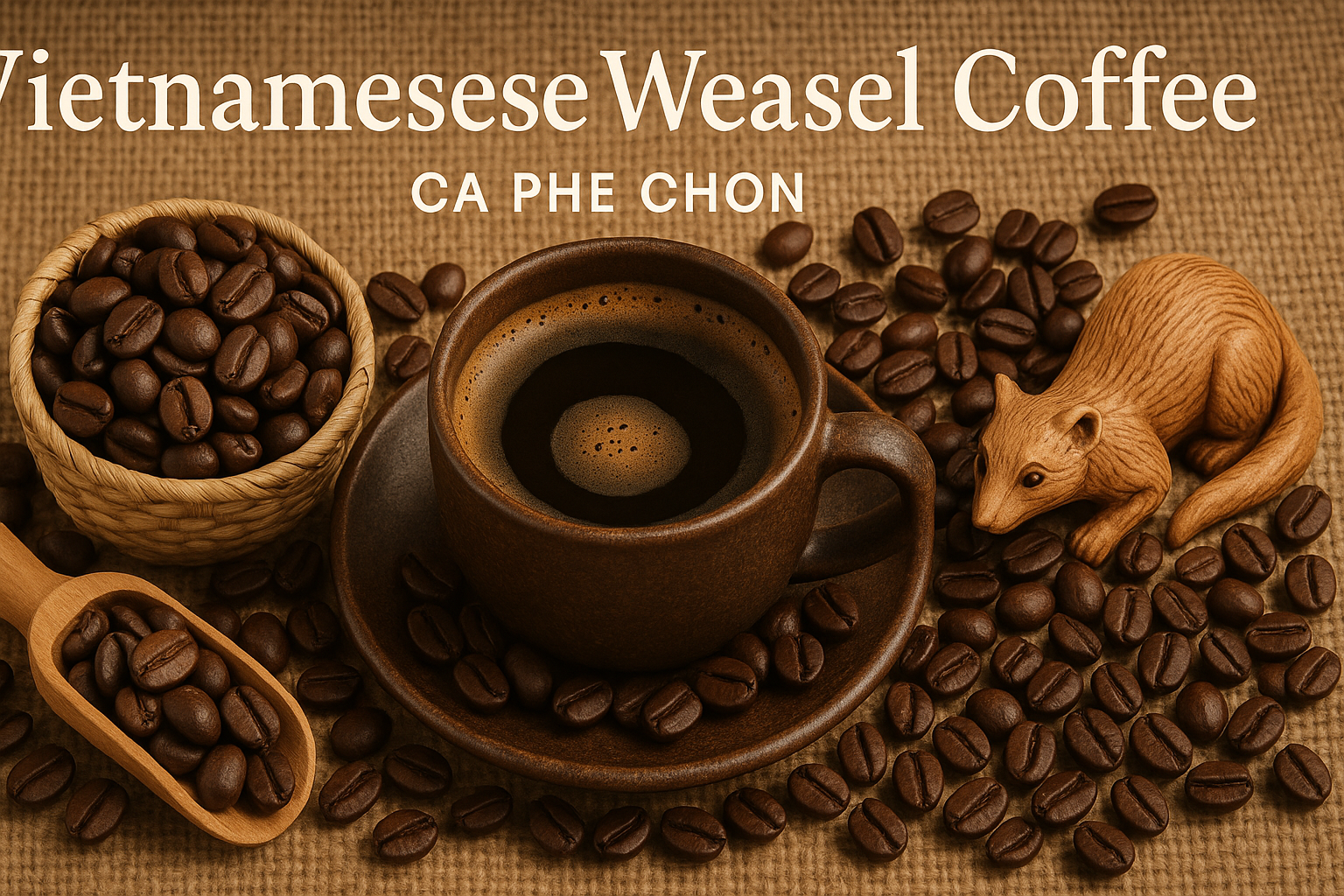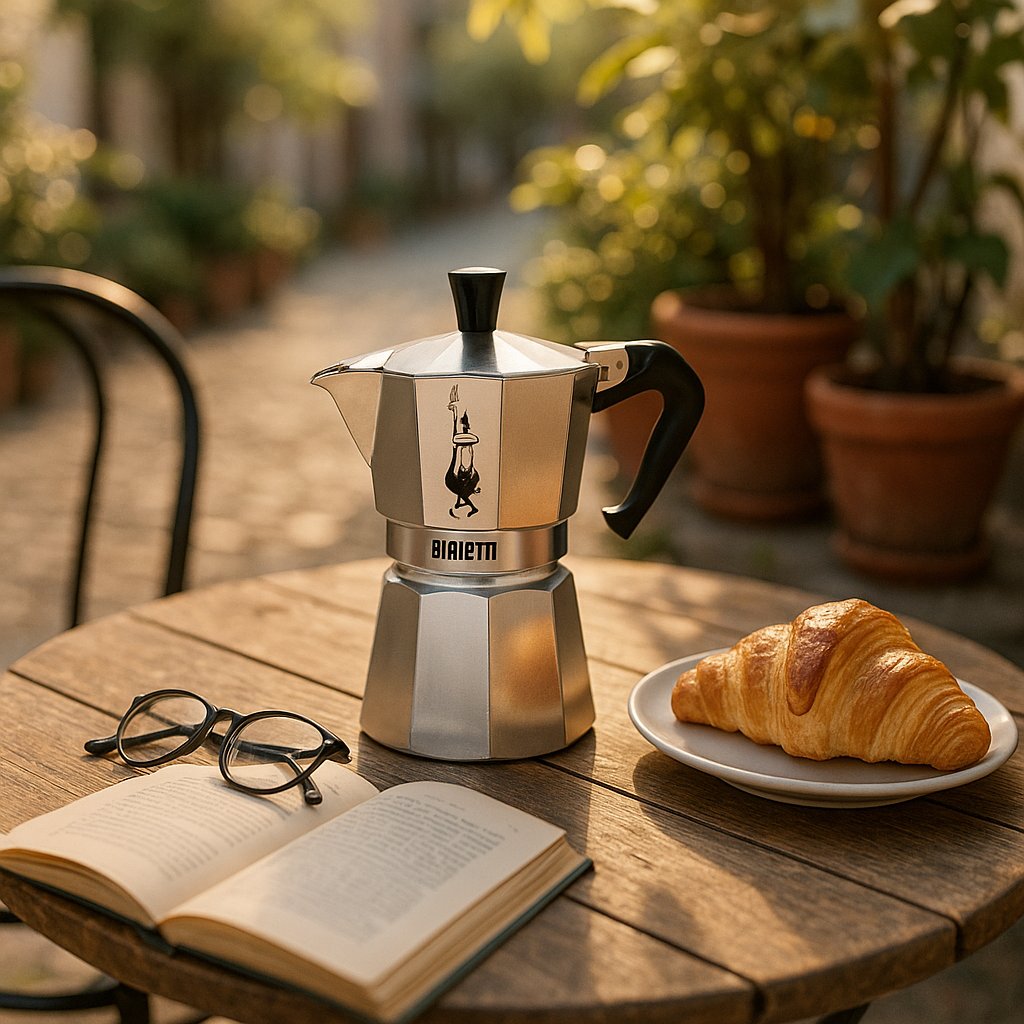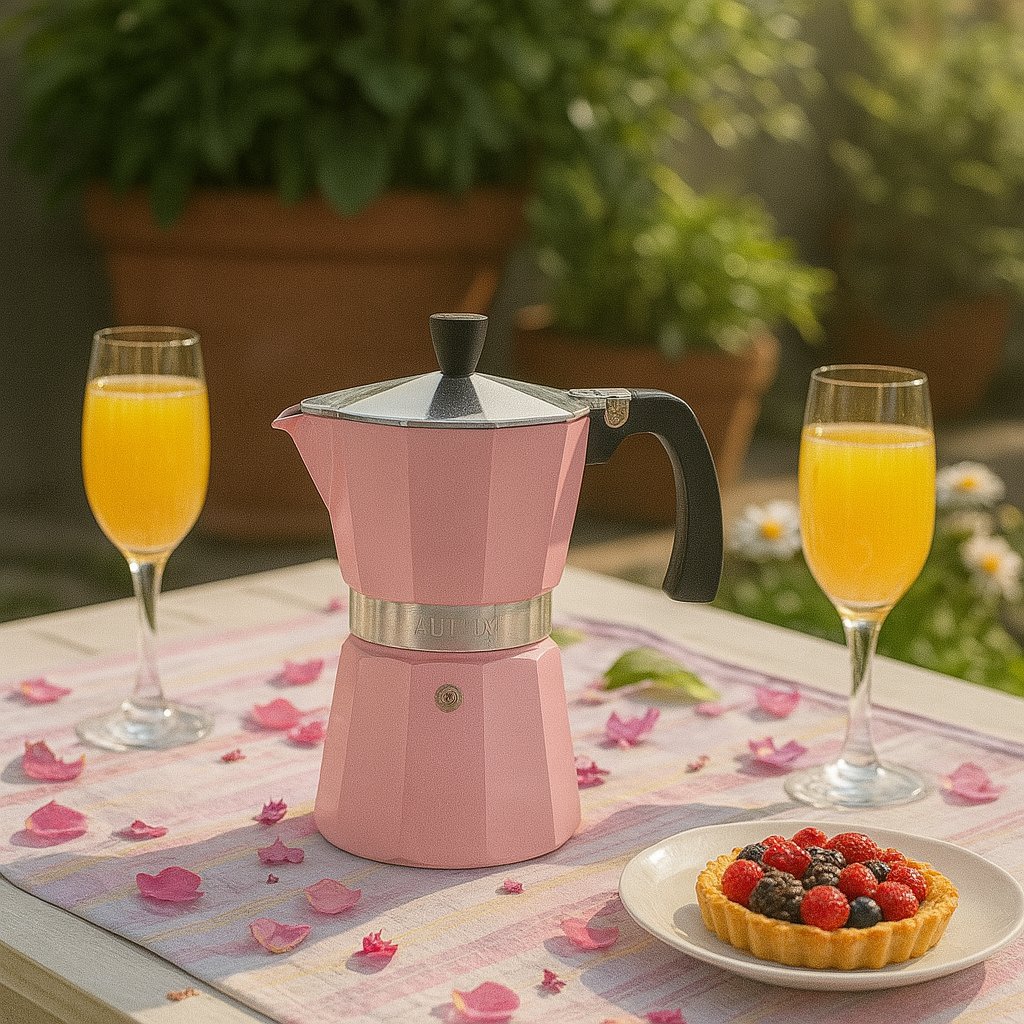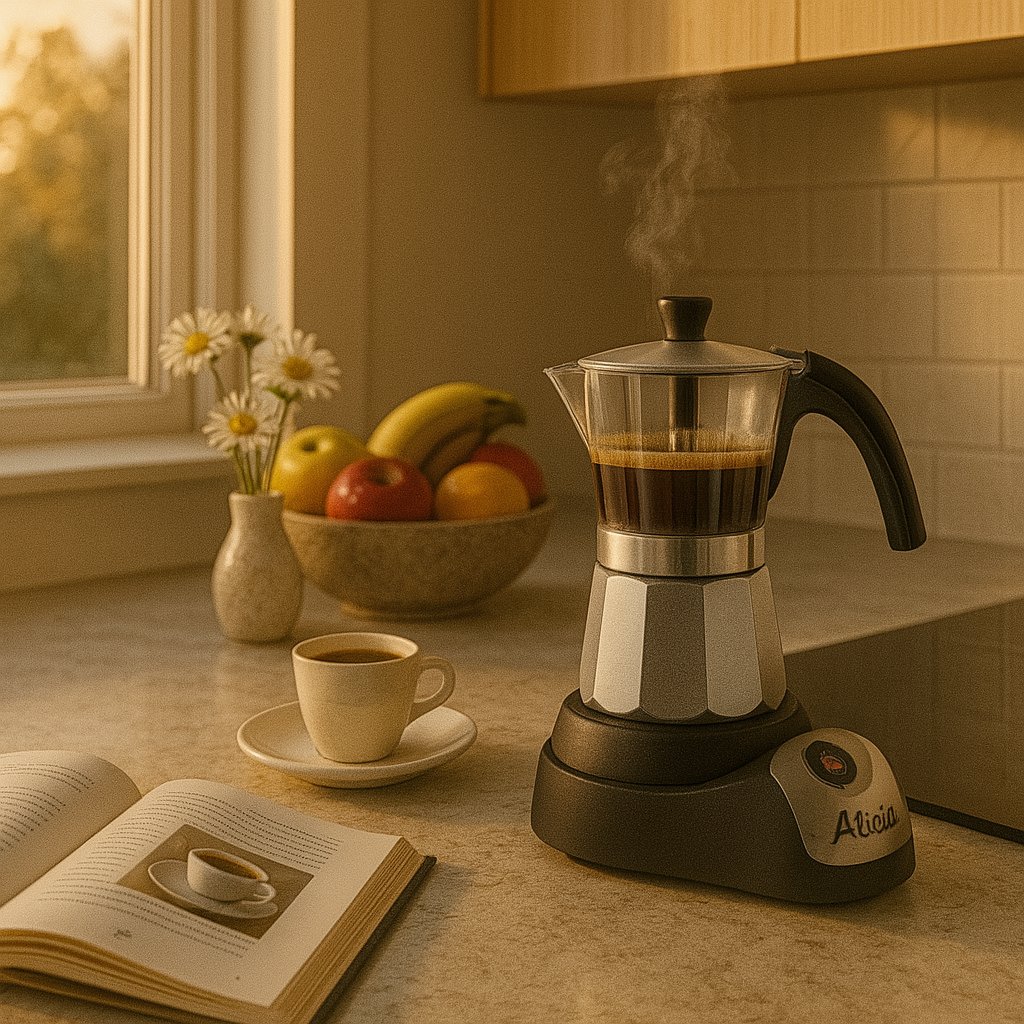The Most Expensive Coffee in the World: Kopi Luwak FAQ
Everything you need to know about Kopi Luwak, the world's most expensive coffee. Marco answers the most common questions about price, quality, ethics, and authenticity based on years of experience and research.
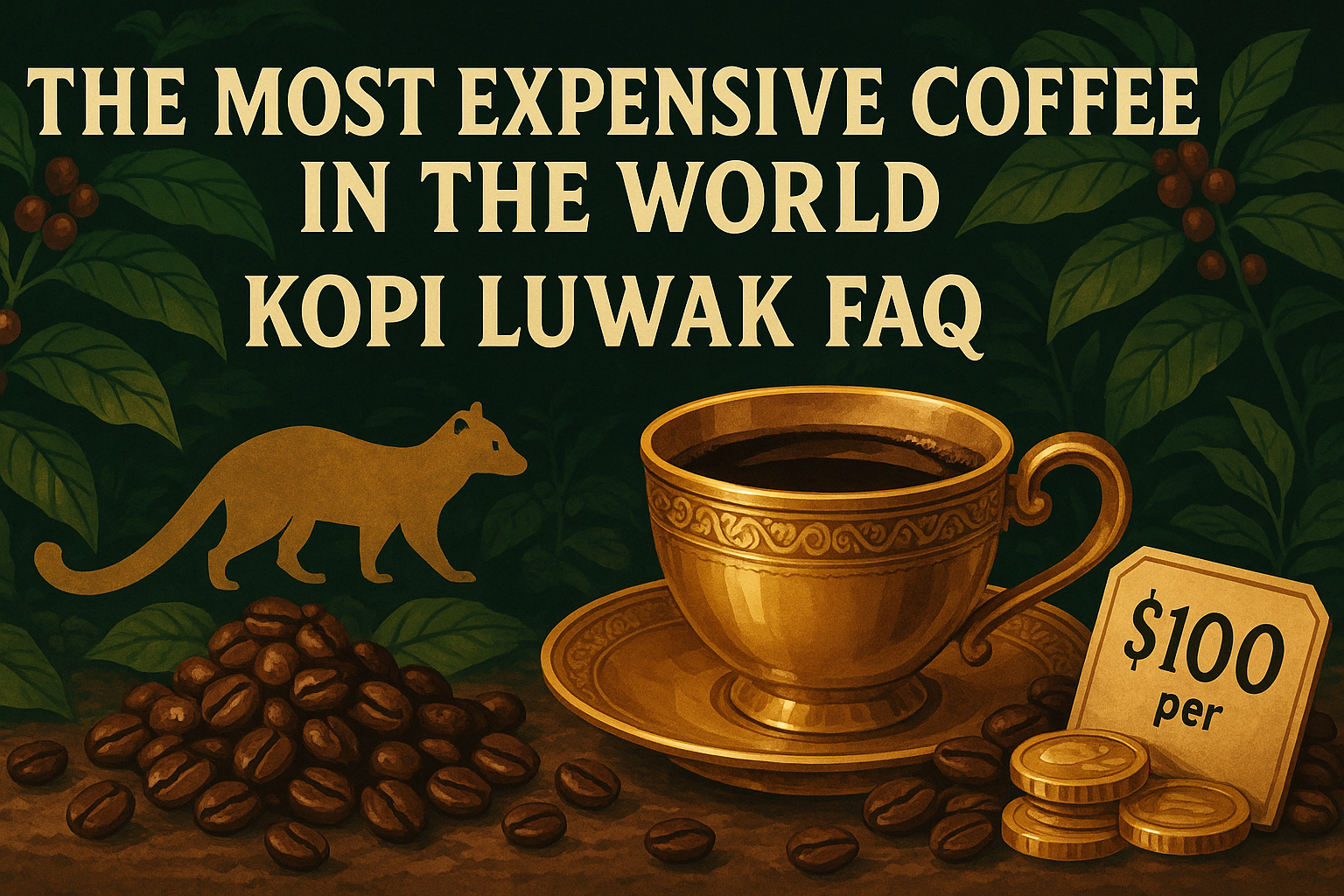
Introduction: Why This FAQ Matters
Over the past decade, I've received hundreds of questions about Kopi Luwak from curious coffee enthusiasts, potential buyers, and even fellow industry professionals. As someone who has tasted authentic Kopi Luwak in Indonesian plantations, investigated quality variations across multiple sources, and witnessed firsthand both the legitimate production and unfortunate counterfeiting of this legendary coffee, I understand why there's so much confusion and curiosity surrounding what many call "the world's most expensive coffee."
The truth about Kopi Luwak is far more complex than most marketing suggests. It's a story that involves fascinating animal behavior, traditional Indonesian farming practices, modern commercial exploitation, ethical concerns, and prices that can rival fine wines or luxury goods. Whether you're considering purchasing Kopi Luwak, simply curious about what justifies its astronomical price, or trying to understand the controversies surrounding it, this comprehensive FAQ will provide you with honest, experience-based answers.
I've organized this guide around the most frequently asked questions I encounter, drawing from my experiences sourcing coffee in Indonesia, conversations with producers and exporters, scientific research, and unfortunately, encounters with numerous counterfeit products. My goal is to give you the complete picture—both the remarkable aspects of authentic Kopi Luwak and the important caveats that any informed consumer should understand.
Basic Questions About Kopi Luwak
Kopi Luwak is coffee made from beans that have been eaten, partially digested, and excreted by Asian palm civets (Paradoxurus hermaphroditus). The name comes from Indonesian: "kopi" means coffee, and "luwak" is the local name for the civet. The civets select ripe coffee cherries, digest the fruit flesh, and excrete the beans, which are then collected, cleaned, and processed into coffee.
The unique aspect isn't just the unusual processing method—it's that the civet's digestive process chemically alters the beans. Enzymes in the civet's stomach break down proteins that typically contribute to coffee's bitterness, while natural fermentation creates complex flavor compounds. This results in a coffee with distinctive smoothness and reduced acidity compared to conventionally processed beans from the same plants.
Several factors contribute to Kopi Luwak's astronomical price:
- Extreme scarcity: A single wild civet produces only 1-2 pounds of processed beans per year
- Labor-intensive collection: Beans must be found in the wild, collected by hand, and meticulously cleaned
- Natural quality control: Civets instinctively select only the ripest, highest-quality cherries
- Unique processing: The digestive fermentation cannot be replicated artificially
- Geographic limitation: Authentic Kopi Luwak comes only from specific regions in Indonesia
- Market demand: High global demand from collectors and luxury coffee enthusiasts
- Brand premium: The exotic story and rarity create additional perceived value
Expert Insight
The price also reflects the premium for authenticity. With so many fakes in the market, verified genuine Kopi Luwak commands even higher prices from collectors willing to pay for guaranteed authenticity.
Pricing varies significantly based on source, quality, and verification level:
| Quality Level | Price per Pound | Price per Cup | Source |
|---|---|---|---|
| Ultra-Premium Wild | $500-600 | $50-75 | Single plantation, verified wild collection |
| Premium Wild | $400-500 | $40-50 | Certified wild sources, limited availability |
| High-Quality Farm | $300-400 | $30-40 | Ethical captive civet operations |
| Commercial Grade | $200-300 | $20-30 | Mixed quality, some authenticity questions |
| Suspicious/Fake | $50-200 | $5-20 | Tourist markets, online retailers |
Price Warning
If you find Kopi Luwak priced under $200 per pound, it's almost certainly fake or heavily adulterated. The economics of authentic production make lower prices impossible while maintaining quality and paying fair wages to collectors.
Quality and Authenticity Questions
Identifying authentic Kopi Luwak requires examining multiple factors, as counterfeiters have become increasingly sophisticated:
Authenticity Indicators
- Bean appearance: Authentic beans show slight irregularities and marks from digestive processing
- Provenance documentation: Detailed information about specific farms, collection methods, and processing
- Price point: Authentic Kopi Luwak cannot be produced profitably under $300/lb
- Limited availability: Real suppliers have small quantities and often sell out
- Distinctive taste: Exceptional smoothness with reduced bitterness and acidity
- Certification: Third-party verification from recognized Indonesian coffee organizations
- Seller transparency: Willingness to provide detailed sourcing information
Red Flags for Fake Products
- Mass availability: Found in multiple coffee shops or widely online
- Perfect-looking beans: Too uniform, lacking processing marks
- Vague sourcing: No specific farm or region information
- Suspiciously low prices: Under $200/lb is almost certainly fake
- Lack of smoothness: Tastes like regular coffee with normal bitterness
- Tourist market sales: Common in Bali, Jakarta tourist areas
- No certification: Cannot provide authenticity documentation
The distinction between wild and farm-raised Kopi Luwak represents one of the most important quality and ethical considerations:
Wild Kopi Luwak (Traditional Method)
- Collection: Beans collected from wild civet droppings in natural forest environments
- Diet: Civets eat varied natural diet including fruits, insects, and selected coffee cherries
- Selection: Natural instinct drives civets to choose only the ripest, best cherries
- Quality: Generally produces the highest quality with most complex flavors
- Quantity: Extremely limited—one civet produces 1-2 lbs annually
- Price: $500-600 per pound for verified wild sources
- Ethics: No animal welfare concerns when properly sourced
Farm-Raised Kopi Luwak
- Collection: Controlled environment with captive civets
- Diet: Primarily coffee cherries, limited dietary variety
- Selection: Less selective eating due to limited options
- Quality: Variable, often lower than wild due to stress and diet
- Quantity: Higher production but still limited
- Price: $200-400 per pound depending on conditions
- Ethics: Ranges from humane to deeply problematic
Quality Impact
The stress of captivity and monotonous diet significantly impacts the fermentation process. Wild civets produce more complex flavor compounds due to their varied diet and natural behavior patterns. This is why authentic wild Kopi Luwak commands premium prices.
The counterfeiting of Kopi Luwak is one of the coffee industry's biggest fraud problems. Based on industry estimates and my own investigations:
The scale of fraud exists because:
- Demand exceeds supply: Global annual production of authentic Kopi Luwak is estimated at only 1,000-2,000 pounds, yet thousands of pounds are sold annually
- High profit margins: Selling regular coffee as Kopi Luwak provides enormous profit incentives
- Difficult verification: Most consumers cannot distinguish authentic from fake without expertise
- Lack of regulation: Limited enforcement of authenticity standards in many markets
- Tourism exploitation: Tourist markets in Indonesia and elsewhere routinely sell fake products
Common Fraud Methods
- Complete substitution: Regular coffee beans sold as 100% Kopi Luwak
- Dilution: Small amounts of real Kopi Luwak mixed with regular beans
- Artificial processing: Regular beans treated with enzymes to mimic fermentation
- Mislabeling: Coffee from other animals or processing methods
- Geographic fraud: Non-Indonesian coffee labeled as Kopi Luwak
Taste and Experience Questions
This is perhaps the most subjective question about Kopi Luwak, and the answer depends heavily on your taste preferences and what you consider "better" in coffee:
What Makes Kopi Luwak Different:
- Exceptional smoothness: Virtually no bitterness or harsh edges
- Reduced acidity: Much milder than typical coffee acids
- Complex flavor layers: Earthy, chocolatey, with subtle fruit notes
- Unique mouthfeel: Velvety texture unlike any other coffee
- Clean finish: No bitter aftertaste, long-lasting pleasant conclusion
When Kopi Luwak Might Disappoint:
- If you prefer bright, acidic coffees: Ethiopian or Kenyan coffee lovers might find it bland
- If you like bold, intense flavors: The smoothness can seem too mellow
- If you enjoy coffee's "bite": The absence of bitterness removes familiar coffee characteristics
- If you're comparing cost-to-taste ratio: Many excellent coffees provide better value
My Professional Assessment
Authentic Kopi Luwak is undeniably unique and technically excellent in terms of balance and smoothness. Whether it's "better" depends on whether you value harmony over intensity. I've tasted many coffees that provided more memorable experiences at much lower cost, but nothing quite like authentic Kopi Luwak's distinctive character.
Given the investment in authentic Kopi Luwak, proper brewing is essential to experience its unique characteristics:
Recommended Brewing Methods:
Pour-Over (Preferred Method)
- Ratio: 1:15 (coffee to water)
- Water temperature: 195-200°F (slightly cooler than typical)
- Grind: Medium-fine, consistent
- Timing: 3-4 minute total extraction
- Why it works: Highlights the complex flavors while maintaining clarity
French Press (Alternative)
- Ratio: 1:12 (coffee to water)
- Water temperature: 200°F
- Grind: Coarse
- Timing: 4-minute steep
- Why it works: Emphasizes the full body and mouthfeel
Brewing Cautions
- Avoid espresso preparation: High pressure can emphasize earthy notes unpleasantly
- Don't over-extract: Kopi Luwak is more sensitive to over-brewing than regular coffee
- Use filtered water: The delicate flavors can be masked by chlorinated or hard water
- Serve immediately: The subtle characteristics fade quickly when left sitting
Ethical and Environmental Questions
Yes, significant ethical concerns exist with much of today's commercial Kopi Luwak production, though the situation varies greatly depending on the source:
Major Ethical Issues
- Cage confinement: Many civets are kept in small, cramped cages their entire lives
- Forced feeding: Captive civets often fed exclusively coffee cherries, causing malnutrition
- Stress and disease: Unnatural living conditions lead to behavioral problems and health issues
- Shortened lifespans: Captive civets typically live much shorter lives than wild ones
- Poor sanitation: Many operations prioritize profit over animal welfare
- Psychological damage: Naturally solitary and territorial animals forced into captivity
Ethical Alternatives
- Wild collection: Supporting traditional collection methods from free-ranging civets
- Ethical farm certification: Some farms provide proper space, diet, and care for civets
- Alternative unique coffees: Naturally processed or experimental fermentation coffees
- Direct trade relationships: Supporting small farmers who treat animals humanely
- Transparency: Choosing suppliers who provide detailed welfare information
The ethical concerns have led many coffee professionals and conscious consumers to explore other unique coffee experiences that don't involve animal welfare issues.
Finding ethically sourced Kopi Luwak requires careful research and often higher investment, but it is possible:
Research Checklist
- Verify wild collection: Ask for specific documentation of wild sourcing methods
- Farm visits: Reputable suppliers should be able to arrange or provide video evidence of conditions
- Third-party certification: Look for animal welfare certifications from recognized organizations
- Local partnerships: Suppliers working directly with traditional Indonesian communities
- Limited quantities: Ethical sources typically have very small, seasonal availability
- Premium pricing: True ethical sourcing commands the highest prices
- Transparency: Willingness to provide detailed sourcing and welfare information
Due Diligence Warning
Be extremely skeptical of any supplier who cannot provide detailed information about animal welfare practices. Many operations make claims about "humane treatment" that don't stand up to scrutiny. When in doubt, consider whether the unique taste experience justifies the potential ethical concerns.
Buying and Investment Questions
Kopi Luwak is generally not recommended as a financial investment, though it can have value as a collectible experience:
Against Investment:
- Perishable commodity: Coffee quality degrades over time, unlike wine or spirits
- Storage challenges: Requires proper climate control to maintain quality
- Market volatility: Prices fluctuate based on availability and trends
- Authentication difficulty: Hard to verify authenticity for resale
- Limited market: Small buyer pool for expensive coffee
- Ethical concerns: Growing awareness may reduce future demand
Potential Value:
- Experience value: Unique tasting experience for coffee enthusiasts
- Education value: Understanding the full spectrum of coffee possibilities
- Gift value: Impressive gift for serious coffee lovers
- Cultural value: Connection to traditional Indonesian coffee culture
- Conversation value: Memorable experience to share with others
Finding legitimate sources requires careful vetting, as the market is flooded with counterfeit products:
Recommended Sources
- Specialty coffee importers: Established companies with Indonesian partnerships
- Certified Indonesian exporters: Companies with government export licenses
- Direct farm relationships: Importers who work directly with specific plantations
- High-end coffee shops: Establishments that can verify their sourcing
- Coffee auction houses: Verified lots sold through professional channels
- Indonesian coffee cooperatives: Traditional producer organizations
Places to Avoid
- Tourist markets: Bali, Jakarta, and other tourist areas routinely sell fakes
- General online marketplaces: Amazon, eBay, and similar platforms have many counterfeits
- Gift shops: Airport and hotel gift shops rarely have authentic products
- Mass market retailers: Grocery stores and chain coffee shops
- Suspiciously cheap sources: Any seller offering "deals" on authentic Kopi Luwak
- Unverified websites: New or unknown online retailers without established reputations
Buying Strategy
Start by building relationships with reputable specialty coffee roasters who can guide you to verified sources. Many legitimate suppliers have waiting lists and limited annual allocations. Be prepared to pay premium prices and wait for authentic products rather than settling for questionable alternatives.
Final Thoughts: Navigating the Kopi Luwak Decision
After years of exploring the Kopi Luwak market, tasting authentic products, and investigating the industry, I hope this FAQ has provided you with the comprehensive information needed to make an informed decision about the world's most expensive coffee.
The reality of Kopi Luwak is complex. When authentic and ethically sourced, it offers a genuinely unique coffee experience unlike anything else in the world. The exceptional smoothness, complex flavor development, and fascinating production story create a memorable experience that justifies its reputation among coffee connoisseurs. However, the industry is plagued by widespread counterfeiting, ethical concerns about animal welfare, and prices that place it beyond the reach of most coffee enthusiasts.
My honest recommendation is this: if you're genuinely curious about Kopi Luwak and can afford the premium price without financial stress, seek out a verified authentic source and try it once as an educational experience. Approach it with realistic expectations—it's different, not necessarily better than excellent conventional coffees, and the experience is as much about understanding coffee possibilities as it is about the taste itself.
However, if you're looking for exceptional coffee experiences at more reasonable prices, there are numerous alternatives that provide equally memorable tastings. Naturally processed Ethiopian coffees, experimental fermentation lots from Central America, rare cultivars, and competition-grade beans all offer unique characteristics and fascinating stories without the ethical complications and extreme costs associated with Kopi Luwak.
Ultimately, the coffee world is vast and full of incredible discoveries. Kopi Luwak represents one fascinating extreme in that spectrum, but it's just one chapter in the much larger story of coffee craftsmanship, cultural tradition, and the endless pursuit of the perfect cup. Whether you choose to explore this particular path or discover the countless other amazing coffees available, the journey of coffee discovery is what truly matters.
